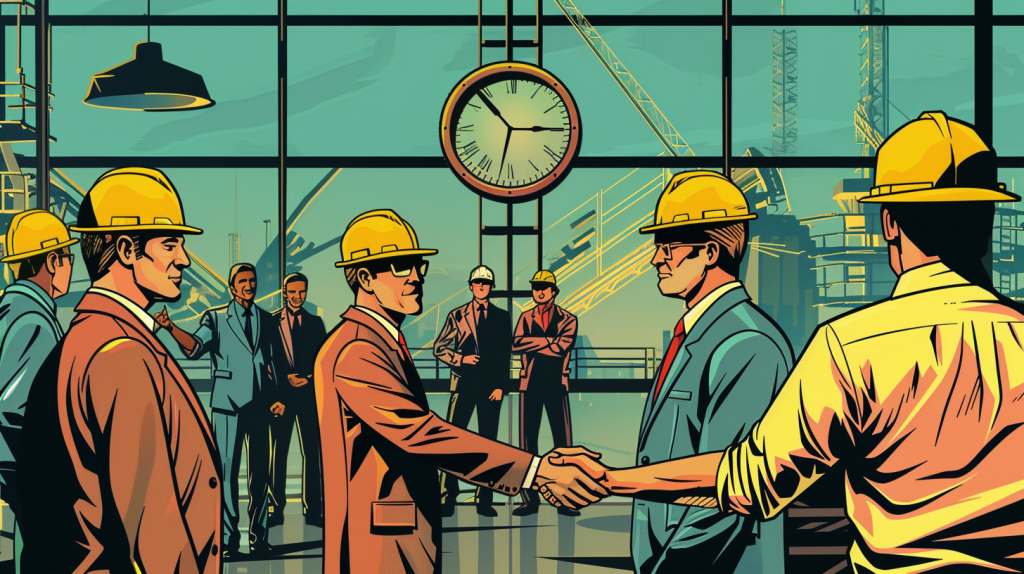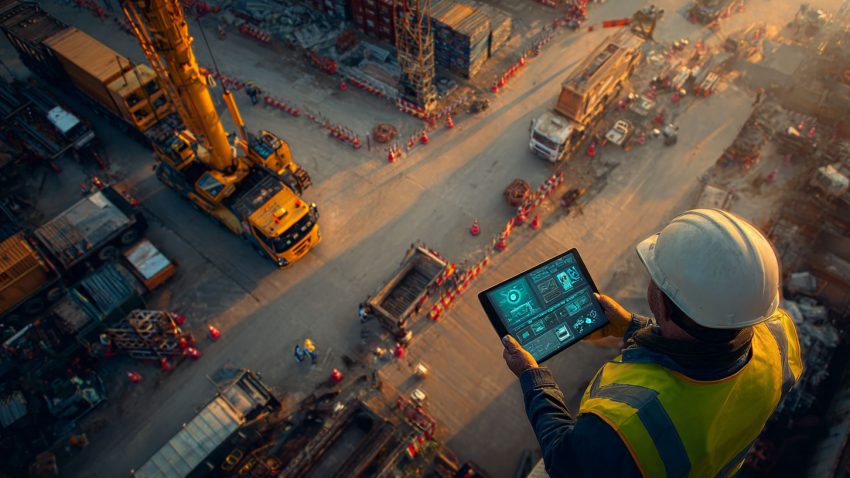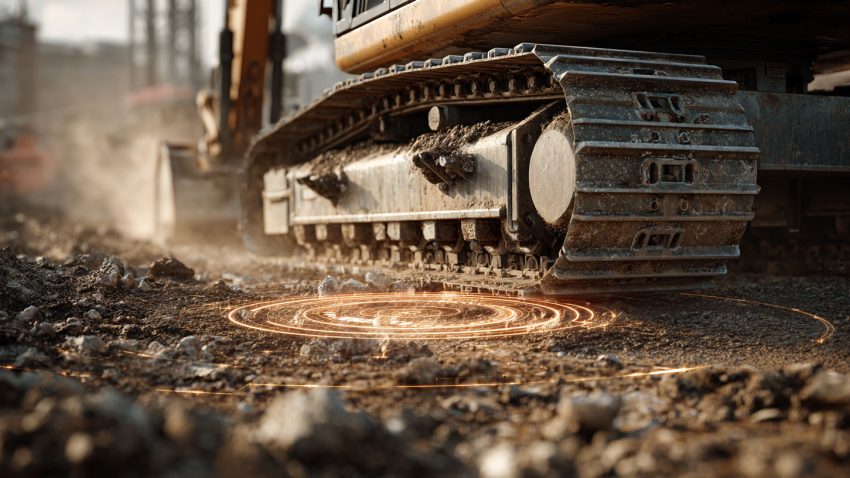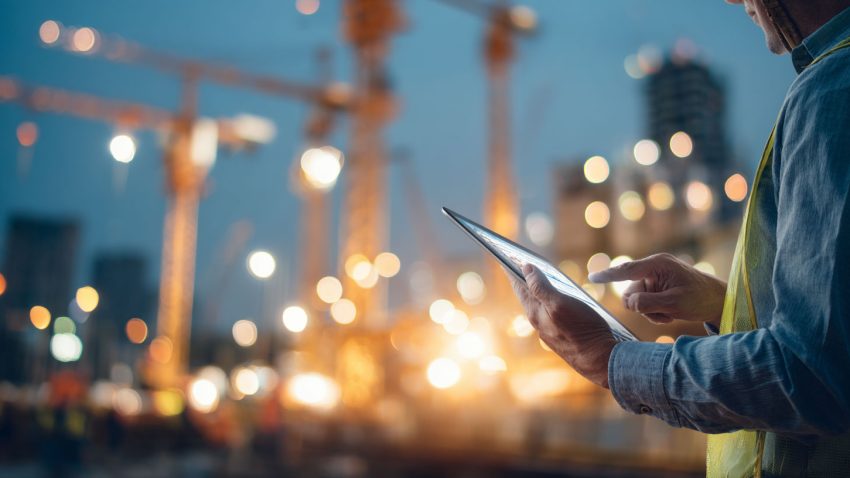Top 14 Breakthrough AI Innovations Transforming Commercial Construction Today
Table of Contents:
Embracing the Future with AI in Construction
The year 2024 marks a pivotal era in commercial construction management, characterized by the integration of AI innovations that are not just advancements but true game-changers. This transformation is reshaping every facet of the industry, from the genesis of a project idea to the final execution on the ground. Imagine a world where construction projects are safer, more efficient, and more sustainable – that’s the reality AI is creating today.
These breakthroughs aren’t just about adopting new technologies; they’re about fundamentally rethinking how we approach construction. It’s a paradigm shift towards smarter, more responsive, and more efficient practices. Let’s delve deeper into these 15 revolutionary AI innovations and explore how they’re reshaping the commercial construction landscape.
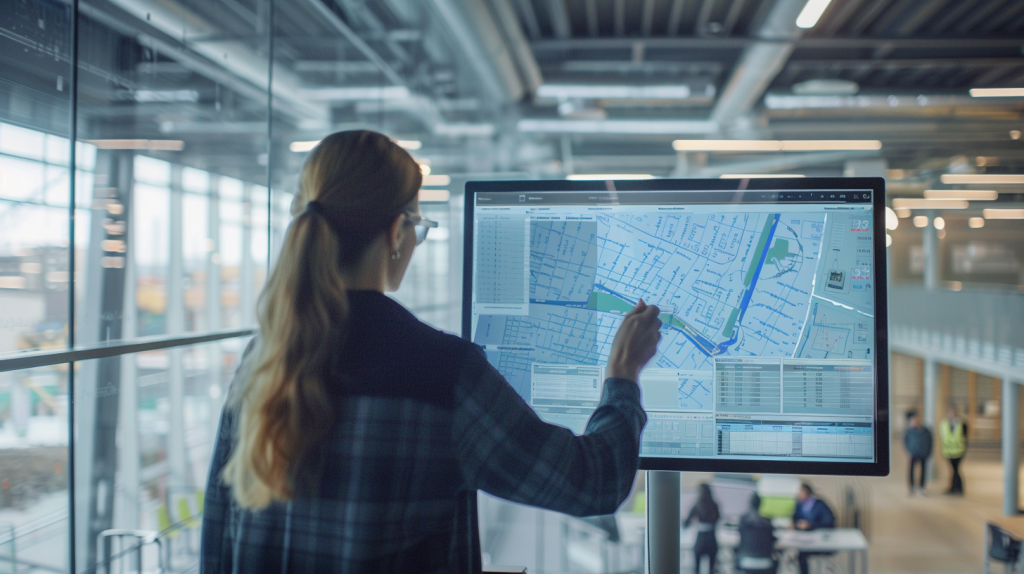
1. Predictive Analysis: The Proactive Approach
Predictive analysis in construction goes beyond mere forecasting; it’s about preemptively identifying potential challenges and opportunities. AI algorithms analyze vast data sets, including weather patterns, supply chain logistics, and labor availability, to predict possible project delays or cost overruns. This foresight enables managers to make proactive adjustments, ensuring smoother project execution and reduced risks.
2. Automated Design Assistance: Creativity Meets Precision
AI in design assistance represents a harmonious blend of creativity and technology. These tools assist architects in refining their designs, ensuring they are not only aesthetically pleasing but also structurally sound and compliant with current regulations. AI-powered design software can suggest optimizations, provide virtual walkthroughs, and even simulate environmental impacts, making the design process more comprehensive and efficient.
3. Enhanced Safety with AI Monitoring
The integration of AI in safety monitoring has dramatically improved onsite safety standards. These AI systems continuously scan the environment for potential hazards – be it structural weaknesses, unsafe worker behaviors, or equipment malfunctions. They provide real-time alerts, allowing for immediate action to prevent accidents. This constant vigilance is revolutionizing site safety, making it more proactive rather than reactive.
4. Intelligent Resource Management: The Efficiency Expert
Resource management, powered by AI, is transforming into a precise science. By analyzing project data, these systems offer insights on optimal resource utilization, including manpower, machinery, and materials. This leads to a significant reduction in waste, increased operational efficiency, and better cost management. AI’s ability to forecast and adapt to changing project needs ensures that resources are always used in the most effective way.
5. AI-Driven Equipment: The Robotic Workforce
The advent of AI-driven equipment is a testament to the blending of robotics and construction. These machines, ranging from autonomous vehicles to robotic arms, perform tasks with a level of precision and endurance that surpasses human capabilities. They work tirelessly, contributing to faster project timelines and reducing the physical strain on human workers.
6. Seamless Workflow Integration: AI as the Conductor
AI is becoming the central nervous system of construction workflows. It integrates various project aspects, from scheduling and procurement to compliance checks and quality assurance. This seamless integration ensures that every project element is harmonically synchronized, leading to smoother operations and reduced chances of error or delay.
7. Cloud-Based Collaboration: The AI-Enhanced Teamwork
AI-enhanced cloud computing is revolutionizing team collaboration. It facilitates real-time updates and decision-making, allowing teams to work together seamlessly, irrespective of their physical location. AI algorithms can analyze project data, suggest improvements, and even predict potential team bottlenecks, making collaboration more dynamic and effective.
8. Sustainable Construction: AI’s Green Thumb
In the quest for sustainability, AI is a powerful ally. It aids in selecting eco-friendly materials, optimizing energy use, and reducing waste. AI-driven analysis of construction methods and materials can lead to more sustainable practices, significantly reducing the environmental footprint of construction projects.
9. Enhanced Client Communication: The Informative Liaison
AI tools have transformed client communication into a more streamlined and informative process. Automated updates, progress reports, and even virtual project tours provide clients with a comprehensive view of the project’s progress. This transparency not only builds trust but also ensures that client feedback is incorporated more effectively.
10. Data-Driven Decision Making: The Power of Insights
In construction management, every decision counts, and AI empowers managers with data-driven insights. By analyzing project data, AI helps in making informed decisions quickly, ensuring that every step taken is backed by solid data. This reduces guesswork and enables a more strategic approach to project management.
11. AI in Training: Preparing for Tomorrow
AI is not just transforming the construction sites but also how the workforce is trained. With virtual reality (VR) and AI simulations, workers can experience realistic job site scenarios in a controlled environment. This hands-on training approach ensures that workers are well-prepared for real-world challenges, enhancing both their skills and safety awareness.
12. Real-Time Project Tracking: The Watchful Eye
Gone are the days of delayed project updates. AI systems provide real-time tracking, offering a comprehensive view of the project’s progress. This constant monitoring ensures that any deviations from the plan are quickly identified and addressed, keeping the project on track.
13. Quality Control: The Perfectionist’s Tool
In the realm of quality control, AI tools are unmatched. They perform thorough inspections and analyses, ensuring that every aspect of the construction meets the highest standards of quality. This meticulous approach results in superior constructions that stand the test of time.
14. The Future Is Now: AI as a Standard in Construction
AI in construction has moved from being a futuristic concept to a present-day standard. Its integration across various aspects of construction management signifies a new era where efficiency, accuracy, and innovation are not just goals, but everyday realities.
Building a Smarter Future
The integration of AI into commercial construction management is not just a trend; it’s a revolution. These 14 AI breakthroughs are redefining the way we approach construction projects. As we embrace these innovations, we pave the way for a future where construction is not only more efficient and safer but also more attuned to the needs of both people and the planet.
StruxHub is a construction project management software that helps you manage projects from start to finish. It offers features like task management, document management, and communication tools. StruxHub can help you save time and money, improve communication, collaboration, and decision-making.
To learn more about how StruxHub can streamline your construction management processes, request a demo today. By completing our form, you’ll hear from our team soon to discuss how StruxHub can help you:
- Schedule construction material deliveries with your trades
- Coordinate construction site resources and on-site logistics
- Digitize work permits and inspection forms
- Communicate and track P6 and Excel schedules
- Broadcast announcements to all construction workers
Don’t miss out on the opportunity to optimize your construction management processes with StruxHub. Sign up for a free demo today.
